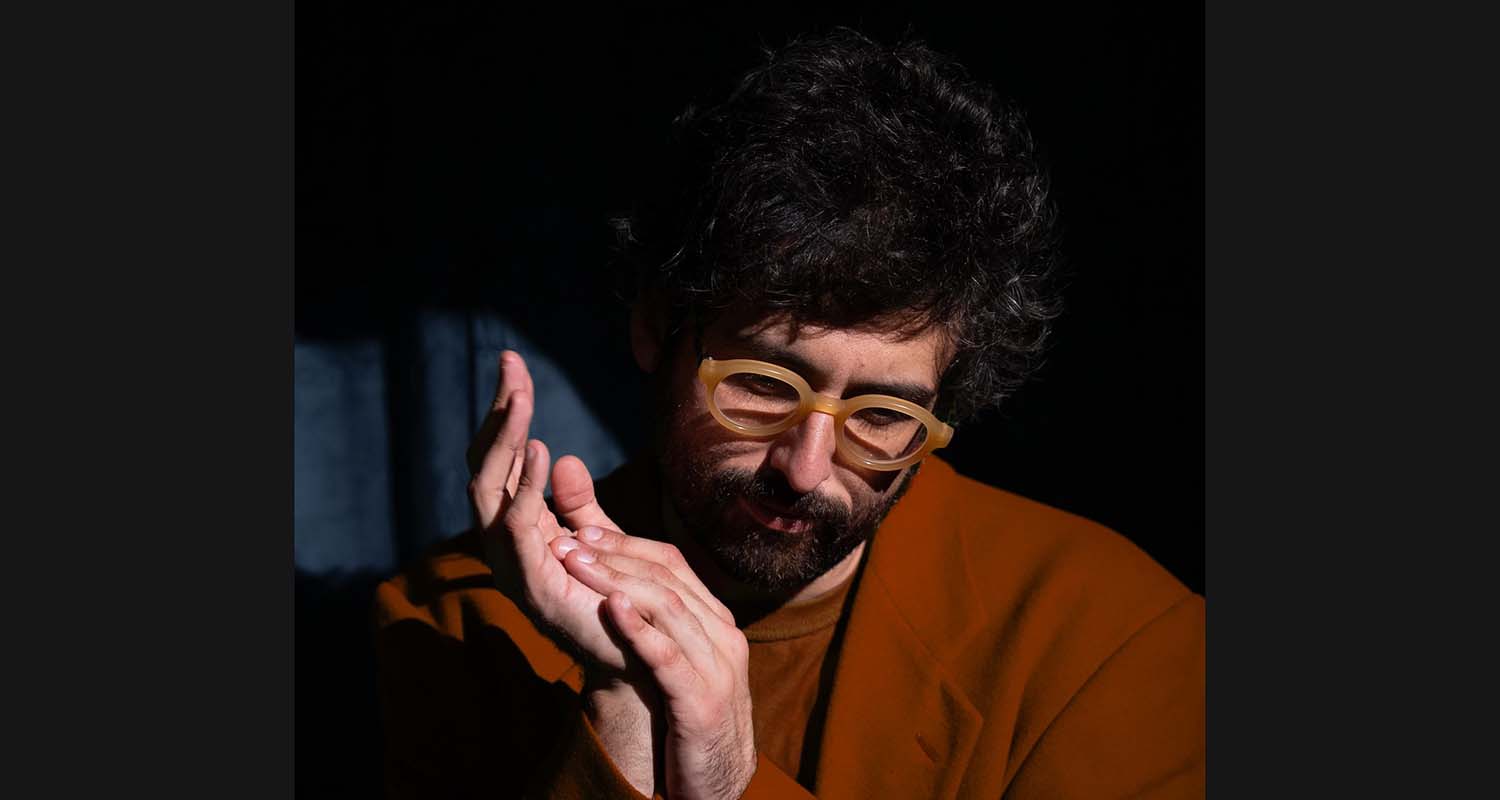the new single “When The Beat Carries On” from acclaimed indie-electronic meets dream pop artist Glassio. “When The Beat Carries On” is a driving, nostalgic anthem that marks the beginning of The Imposter era, a dream-pop journey through illusion, identity, and rebirth. Glassio’s highly anticipated new album The Imposter is set for release February 25th, 2026.
Glassio has garnered 25 million streams and his music has received placements in Netflix and HBO series. His music has received praise from the likes of FADER, NYLON, FLOOD, Wonderland and Consequence among others.
Glassio’s third album, The Imposter, is a luminous meditation on identity, doubt, and the quiet act of returning to oneself. Written after a transatlantic move from New York to London and in the wake of newfound sobriety, the record unfolds as a self-portrait in motion — a dream-pop opus about shedding illusion and rediscovering purpose in creation.
Across its 13 tracks, Glassio (Sam R.) weaves together elements of shoegaze, early-2000s electronica, and psychedelic folk, creating a sonic world where memory and melody drift in tandem. The album moves like a lucid dream — opening in disorientation (“Join the Club,” “Give Me Back My Future”), spiraling through moments of self-doubt and longing (“I’m So Far Away,” “Downtown Hero”), and ultimately arriving in grace and acceptance with the closing track, “Take a Look at the Flowers” — a radiant collaboration with avant-pop artist Madge.
“That song became my way of ending the loop,” Sam explains. “After all the searching, it’s just about stopping for a second — seeing what’s still blooming around you. It’s the record’s exhale.”
At its core, The Imposter asks a question that has haunted artists for generations: If you were denied the right to create, would you still know who you are? This inquiry surfaces most directly on “Hit or Bliss,” a spoken reflection that reframes the classic Rilkean test of creation as survival.
The album doesn’t offer easy answers — instead, it finds beauty in uncertainty, empathy in imperfection, and purpose in the impulse to keep making.
“For a time, I lost my sense of self,” Sam admits. “I’d been performing roles — for people, for the industry, for an idea of who I thought I was supposed to be. This album was me stripping all that away and finding the real voice underneath.”
From the pulsing nostalgia of “Heartstrings” to the spectral shimmer of “Al Pacino” and the introspective haze of “I’m So Far Away,” each track feels like a page from an artist’s internal dialogue — by turns playful, melancholic, and transcendent. Even the most outward-facing songs hum with inner reckoning.
Single “When The Beat Carries On” is a driving, nostalgic anthem, a dream-pop journey through illusion, identity, and rebirth.
While Glassio’s earlier work drew comparisons to the escapist bliss of acts like Hot Chip and M83, The Imposter inhabits a more vulnerable register — one where self-awareness replaces spectacle, and the line between persona and person begins to blur.
It’s a record born from confrontation: with addiction, with artistic doubt, with the quiet fear of being forgotten. But in the end, The Imposter offers a different kind of faith — the faith that what’s real can’t be performed.
“A maker makes,” Sam says. “That’s what they are. I had to stop running from that.”
By the time “Take a Look at the Flowers” closes the record, the tension has softened. What began as a battle with identity ends in a gentle realization: the self was never lost — it was waiting beneath the noise all along.


